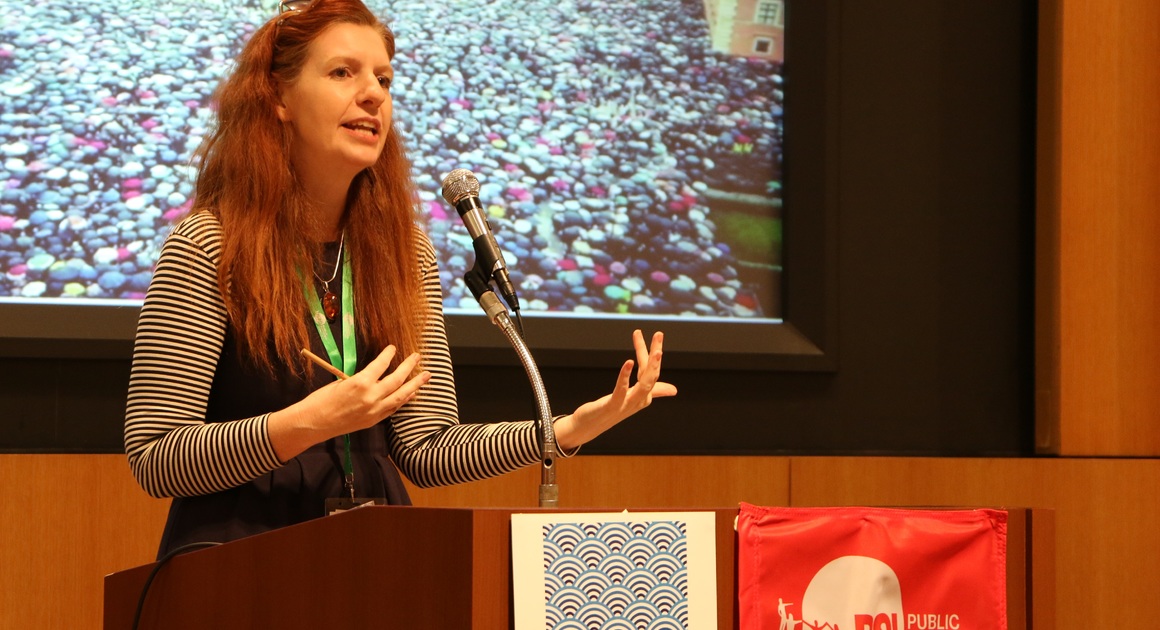Trade Union Win Energy Union Wins Historic Election in Bangladesh

For 16 years energy workers in a public energy company in Bangladesh have been denied their collective bargaining rights. PSI affiliate, the Ashuganj Power Station Company Limited Sramik Karmachari Union (APSCLSKU), finally forced an election and won the right to bargain by more than a two-third majority.

Jyotsna Singh
After 16 years of persistent campaigning and organising, the Ashuganj Power Station Company Limited Sramik Karmachari Union (APSCLSKU) has secured a resounding victory in the recent elections at Ashuganj Power Station Company Limited (APSCL). It won the right to be the Collective Bargaining Agent (CBA) by more than a two-thirds majority. This triumph establishes APSCLSKU as the official union for the workers, a critical step in advocating for their rights and negotiating with the management.
The election marks a significant milestone in the workers' long-standing struggle for representation. Since APSCL's formation in 2008, workers had been rallying for their right to elect a CBA. APSCLSKU's victory comes after years of organising, holding rallies, demonstrations, and repeated submissions to the authorities to ensure the elections were finally held.
Kate Lappin PSI Regional Secretary, Asia Pacific

Unions in Bangladesh have faced persistent, illegal and dangerous conditions. We congratulate APSCLSKU and all the workers who are determined to secure better conditions for workers and a better public energy system for their country.
“This is a big victory. Workers are very happy. There was no CBA so far. Being a CBA puts us in the driving position to talk to the management on behalf of the workers of APSCL,” said Enamul Hoque, General Secretary of APSCLSKU. “We have started consulting with our members and organising workers to develop a charter of demands and start bargaining.”
Contractualisation is one of the major issues the union wants to challenge. Management has gradually replaced permanent positions with contract workers, which has led to a decrease in wages and conditions, and designed to weaken the union. Hoque emphasised that this shift has affected both the workload and the efficiency of the company.
“This has increased our workload as permanent employees have to fill the gaps. Contractualisation also adversely impacts efficiency,” Hoque explained. He noted a significant decline in the workforce, stating, “In 2002, there were 760 voters, while there were only 379 this time. Instead of an increase in the number of workers as energy demands grow, it has decreased.” APSCLSKU secured 263 out of 379 votes, earning the support of 70% of the workers.
Historically, the electricity sector in Bangladesh was entirely public. However, since 1990s, the sector was restructured, leading to the formation of several companies, including APSCL in February 2008. According to Section 202 (2) of the Bangladesh Labour Act, 2006, CBA elections should be held within 120 days of a company's formation. Despite this provision, APSCL had not held CBA elections for 16 years. APSCLSKU’s persistent demands, most recently in August 2024, finally led to the elections.
Enamul Hoque Gen Sec, APSCLSKU

This is a big victory. Workers are very happy. Being a CBA puts us in the driving position to talk to the management on behalf of the workers of APSCL
APSCLSKU dedicated this victory to Md. Zafrul Hasan who was a renowned trade unionist and Executive Director of Bangladesh Institute of Labour Studies (BILS). He was also an Executive Board member of PSI. He passed away in April 2020.
APSCLSKU has been affiliated with Public Services International (PSI) since 2016. PSI has played a crucial role in supporting the union, helping to organise workers around the demand for elections and providing capacity-building assistance as needed.
“This is very good news. PSI strongly believes that workers need to unite and organise to make authorities meet their demands. Only unified workers can press for decent working conditions,” said Kannan Raman, PSI’s Sub-regional Secretary for South Asia.

Kate Lappin, PSI’s Regional Secretary for Asia-Pacific, also congratulated the union on its victory. “Unions in Bangladesh have faced persistent, illegal and dangerous conditions for years. Despite this, APSCLSKU persisted in demanding trade union rights for energy workers and has now secured a historic victory. We congratulate the union and all the workers who are determined to secure better conditions for workers and a better public energy system for their country.”
In a popular uprising led by students and workers, the people of Bangladesh successfully brought down the government of Prime Minister Sheikh Hasina in 2024. The interim government led by Muhammad Yunus has improved the environment for trade unions and committed to widespread labour law reforms.
PSI facilitated discussions with affiliates, national centers, the Bangladesh Institute of Labour Studies and prominent economist, Professor Anis Chowdhury in 2024. The discussions were designed to support affiliates and the union movement to grasp the opportunity to win better labour laws and more equitable macro-economic policies.
For more on the macro-economic reforms proposed by Professor Chowdhury, see:
International financial institutions’ culpability
Moody’s ‘moody’ rating downgrades Bangladesh
Bangladesh in Crisis: Which way out?
Odious Debts: What Can Bangladesh Learn from Ecuador?
Recovering stolen assets: No weakening of resolve